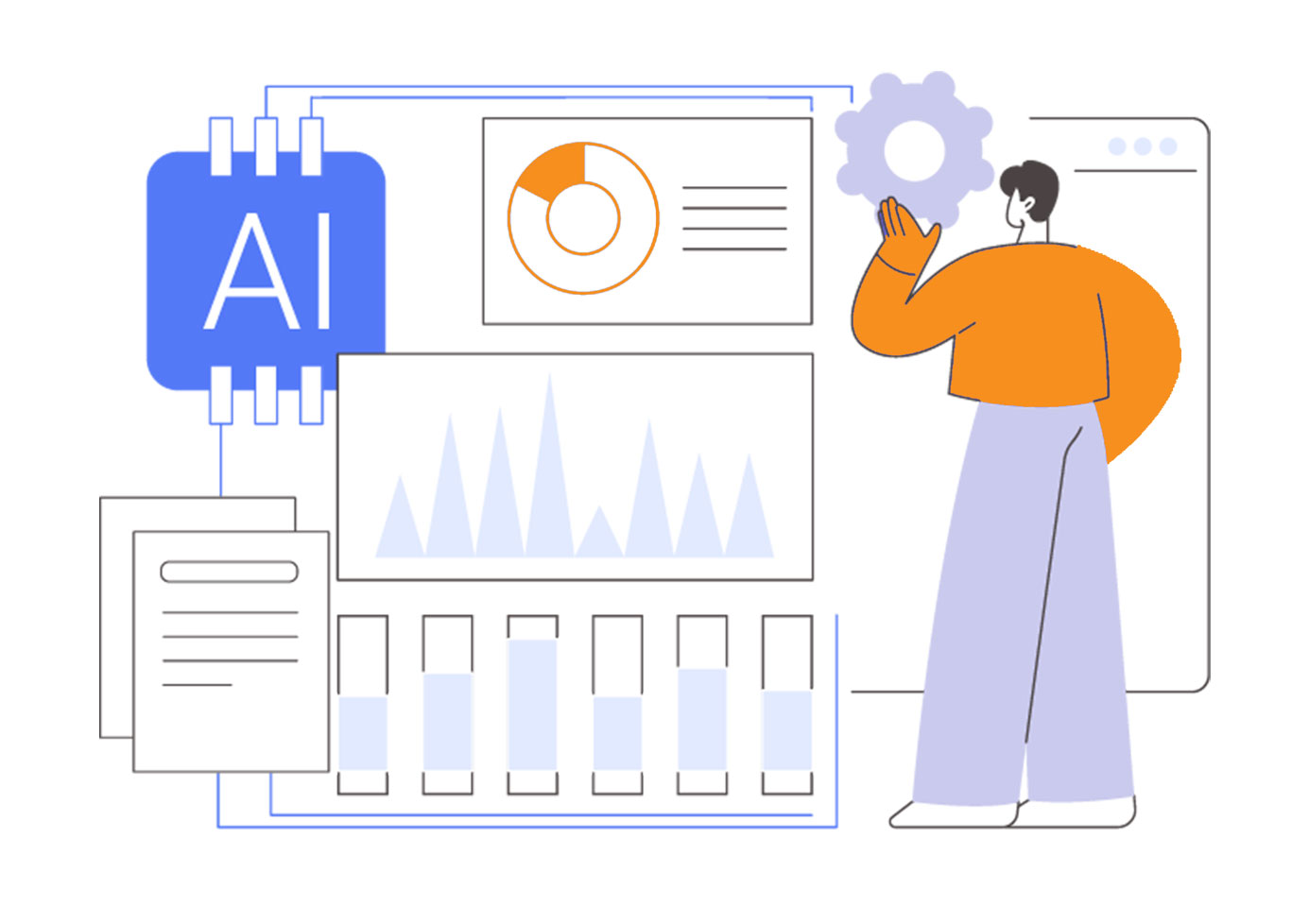Artificial intelligence (AI) agents are software entities that can perform tasks on behalf of humans, using AI technologies to make decisions and learn from their interactions. In the field of enterprise systems, these agents are pivotal components, driving automation and helping with more complex, decision-oriented tasks.
Agentic workflows refer to the systems and processes where AI agents play a critical role. These workflows are designed to integrate seamlessly with AI capabilities, enhancing both the efficiency and effectiveness of work processes. In this article, we will explore how AI agents are being integrated into enterprise systems, looking at the technologies that enable these workflows and the advantages they provide.
As we delve into the integration of AI agents into enterprise environments, we will also discuss the evolution of these technologies, from their inception to their current state, and project future trends that could further influence their development and adoption.
The journey of AI agents within the context of business process applications represents a major development from rudimentary automated systems to advanced, smart entities capable of complex decision-making and learning. This transformation has been driven by rapid advancements in AI technologies and a growing recognition of the potential benefits these agents can offer in a business context.
Historical Perspective: From Simple Automation to Intelligent Agents
Originally, automation in business was largely rule-based, focusing on repetitive tasks with minimal variability. Early systems relied heavily on set rules and were unable to adapt to new data or changing environments. However, the advent of machine learning and adaptive algorithms marked a significant shift, giving rise to AI agents capable of learning from data and making autonomous decisions.
Current Trends in AI Agent Integration
Today, AI agents are increasingly integrated into core business processes, where they contribute to both operational efficiency and strategic decision-making. Key trends include:
Core Components of Agentic Workflows
Agentic workflows in enterprise systems leverage several key technologies and structural elements to harness the full potential of AI agents. Understanding these components is essential for effectively integrating AI agents into business processes.
Key Technologies Driving AI Agents
Several foundational technologies enable the functionality and effectiveness of AI agents within enterprise systems:
Agentic workflows are structured to maximize the efficiency and effectiveness of AI agents by integrating them seamlessly into business operations. The typical structure includes:
AI agents find applications across a broad range of industries, each benefiting from specific aspects of agentic workflows:
The integration of AI agents into enterprise systems brings a host of benefits, from increased efficiency to enhanced decision-making capabilities. These advantages can significantly impact an organization’s productivity and profitability.
Efficiency Improvements and Cost Reductions
One of the primary benefits of employing AI agents is the substantial increase in operational efficiency they provide. By automating routine tasks, AI agents can free up human employees to focus on more complex and strategic activities. This shift not only boosts productivity but also reduces errors associated with manual processes. Additionally, AI-driven optimizations in areas like supply chain management and energy consumption can lead to significant cost savings.
Enhanced Decision-Making Capabilities
AI agents contribute to better decision-making by providing data-driven insights that are faster and more accurate than those humans can typically generate. By analyzing vast amounts of data, AI agents can identify trends and patterns that might be invisible to the human eye, supporting strategic business decisions such as market entry, product development, and risk management.
Scalability and Adaptability to Changing Business Needs
AI agents are highly scalable, able to handle increasing amounts of work or integrate new functionalities as a business grows or its needs change. This adaptability makes AI agents particularly valuable in dynamic markets where agility and quick responses to market changes are crucial for maintaining competitive advantages.
Looking ahead, the role of AI agents in enterprise systems is poised for even greater expansion. Advancements in AI technologies, such as deeper integration of machine learning and more sophisticated natural language processing capabilities, are expected to enhance the functionality and autonomy of AI agents. This will likely lead to more complex applications and an increase in their transformative impact across all areas of business. Technologies like quantum computing and blockchain, has the potential to drastically increase the speed and capacity of data processing, which could revolutionize how AI agents learn and make decisions.
By understanding and leveraging the capabilities of AI agents, businesses can enhance their operational efficiency, make better decisions, and adapt more quickly to market changes. As AI technology continues to evolve, the potential for AI agents to transform enterprise systems grows. Businesses that embrace these changes can expect to see substantial benefits in the years to come.

OpenAI Introduces GPT-4o OpenAI has introduced GPT-4o, the latest iteration in its series of generative pretrained transformers. GPT-4o, where ‘o’…

Artificial Intelligence (AI) is transforming industries across the globe. Businesses are increasingly recognizing the potential of AI to streamline operations,…

Introduction to Automation and AI From streamlining routine tasks to enabling complex decision-making the integration of automation technologies and artificial…